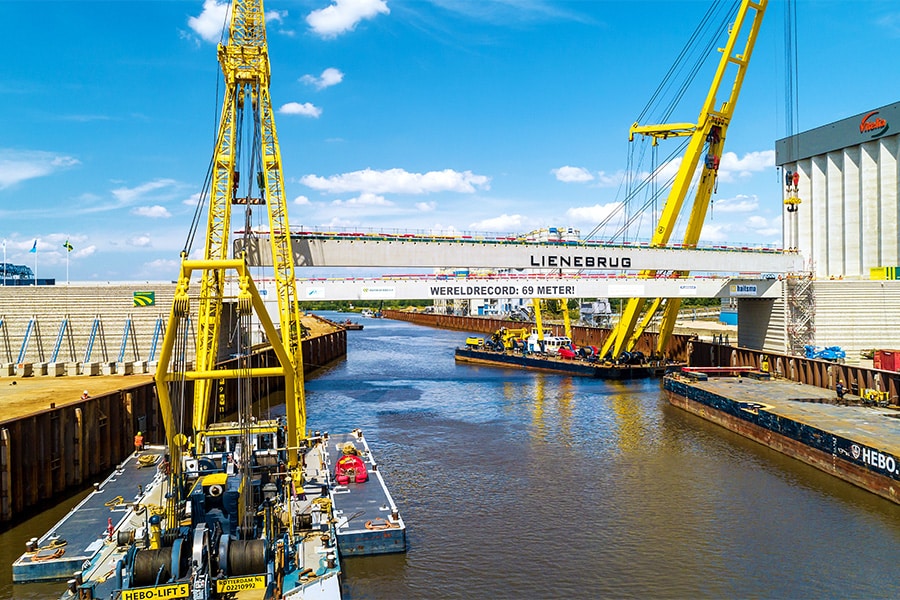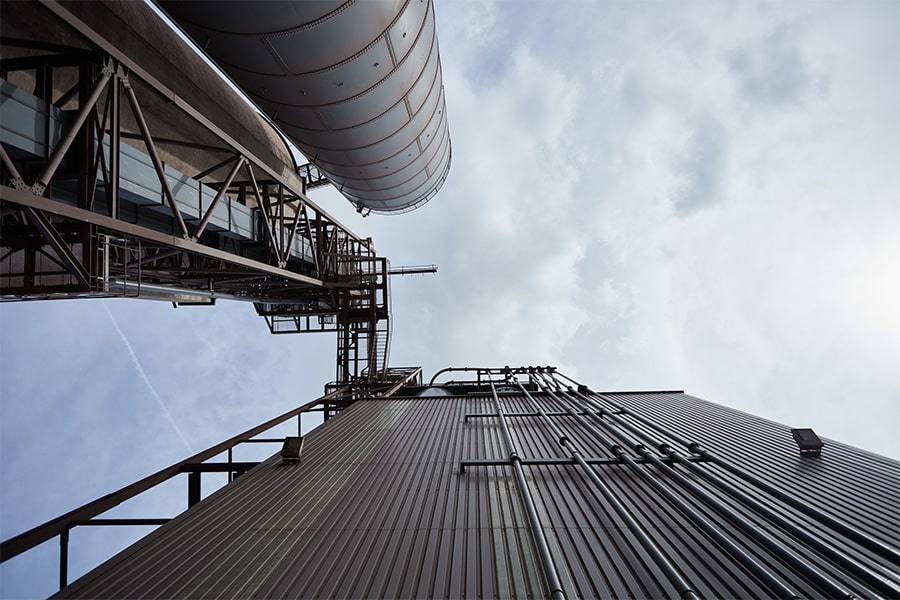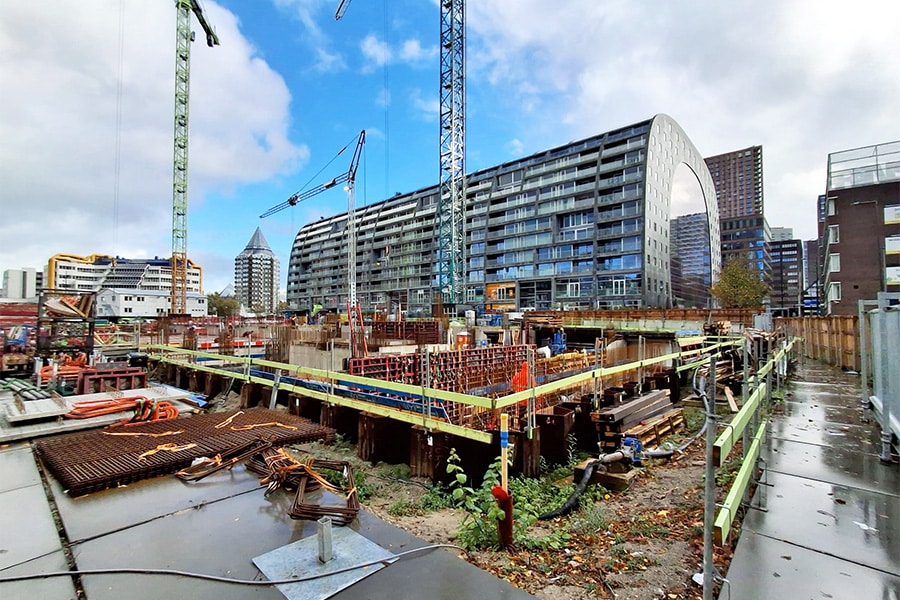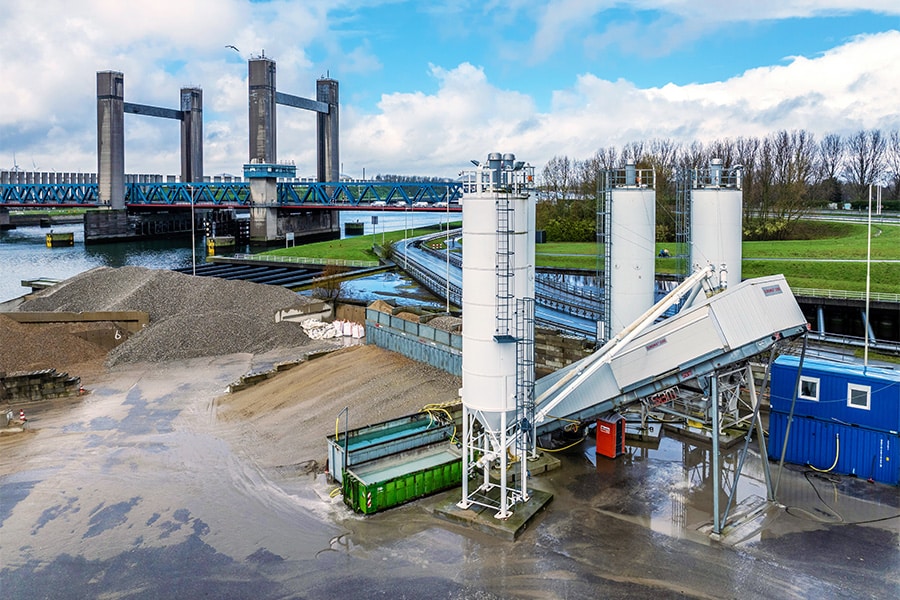
CSC gold for leader in mobile concrete production
Having your own concrete plant on site temporarily obviously has numerous advantages, including time savings and cost savings. The Mobile Concrete Group (MCG) already distinguished itself by being one of the few parties in the Netherlands with mobile concrete plants that are not exclusively tied to one contractor. Now, moreover, this frontrunner in mobile concrete production is the first to achieve a Concrete Sustainability Council (CSC)-level Gold. “Wherever possible, we operate in a sustainable manner and that already starts at our location in Rozenburg, where we charge the mixer trucks with wind energy,” Anton Koelma, MCG's managing director, explains enthusiastically.
It is just one example from the wide range of measures MCG takes to work as sustainably as possible. “Because we put our mobile concrete plants directly on the construction site, we basically save a lot of transport movements anyway. We also gain environmental benefits when a construction project is located on the waterfront. This is because we can deliver all materials by ship, which saves thousands of freight movements per project and therefore many transport costs. An additional advantage is that the road network is significantly less burdened.” MCG's approach not only reduces CO2 emissions, but also increases speed and flexibility on site.
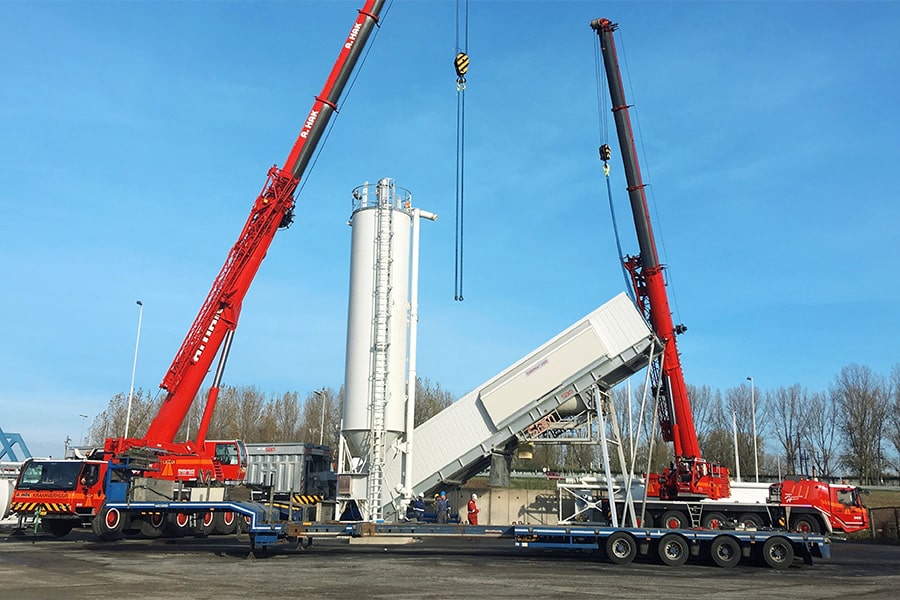
Durable concrete mixtures
MCG also looks critically at the impact when composing concrete mixes. “We choose cements with a low CO2 load and MKI score. In addition, we can add concrete granules upon request. These secondary raw materials are created from crushed, sieved and washed concrete rubble and reduce the need for primary raw materials, thus contributing to a lower environmental impact.”
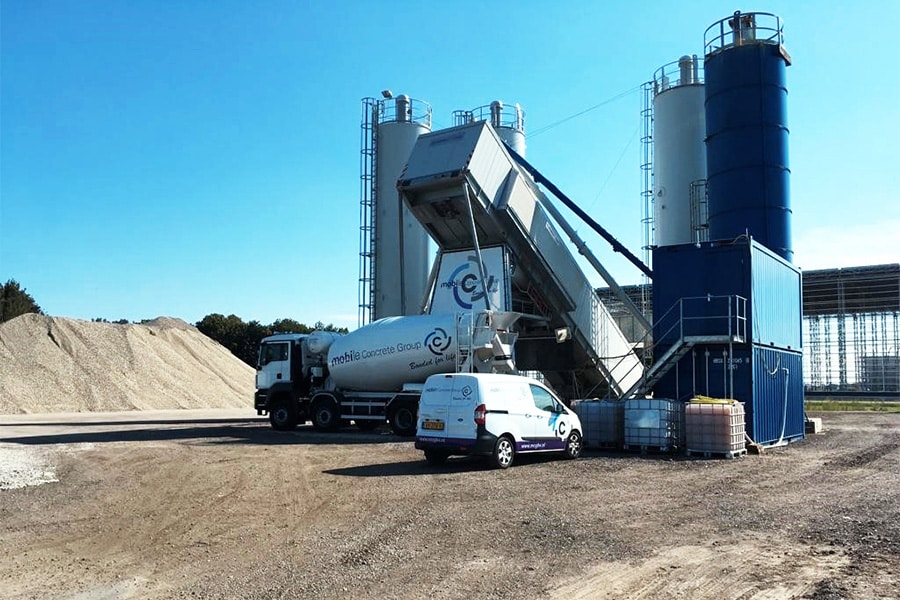
Electric
An important part of the sustainability approach is electrification. “Our machines and mixer trucks run fully electric. If there is no grid connection, we bring in generators that can run on hydrogen.”
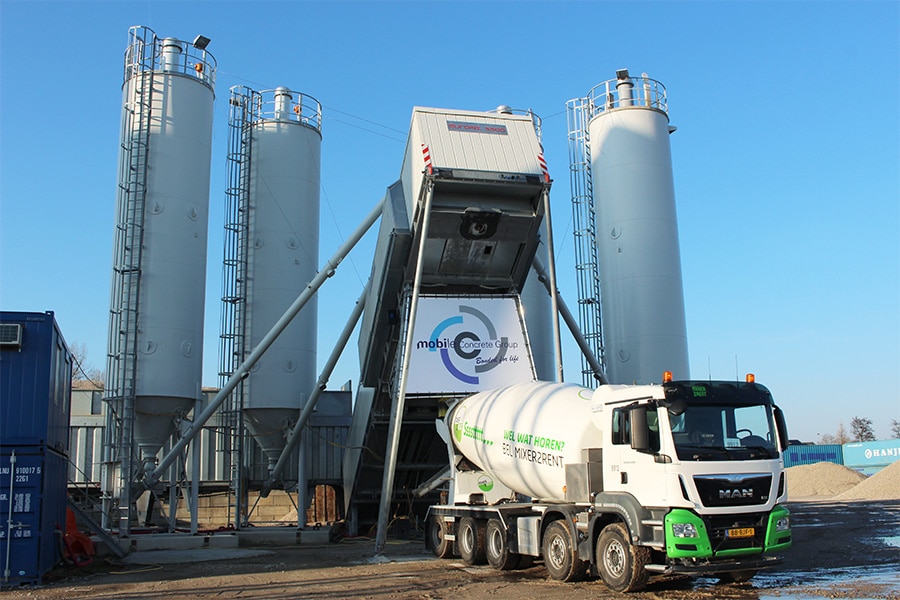
Gold as proof
In addition to its own initiatives, MCG also looks at the supply chain. All raw material suppliers are CSC-certified, which ensures the sustainability of the entire production chain. “Our plants in Rozenburg and Schiphol have also achieved CSC Gold certification,” Koelma says proudly. “We were the first in the Netherlands to certify a mobile concrete plant at this level.” This is proof that MCG goes beyond fine words and truly invests in demonstrable sustainability.
Competitive price
MCG's mobile concrete plants have a capacity of as much as 100 to 130 cubic meters per hour. “We operate freely in the market and can set up our concrete plants at any location within 24 hours. This flexibility provides great advantages for transportation, environment, quality and costs. Our plants are used on numerous projects, both short-term and long-term. And we do so at competitive prices. Having a temporary concrete plant exclusively on your own construction site naturally has numerous advantages, including time savings.”
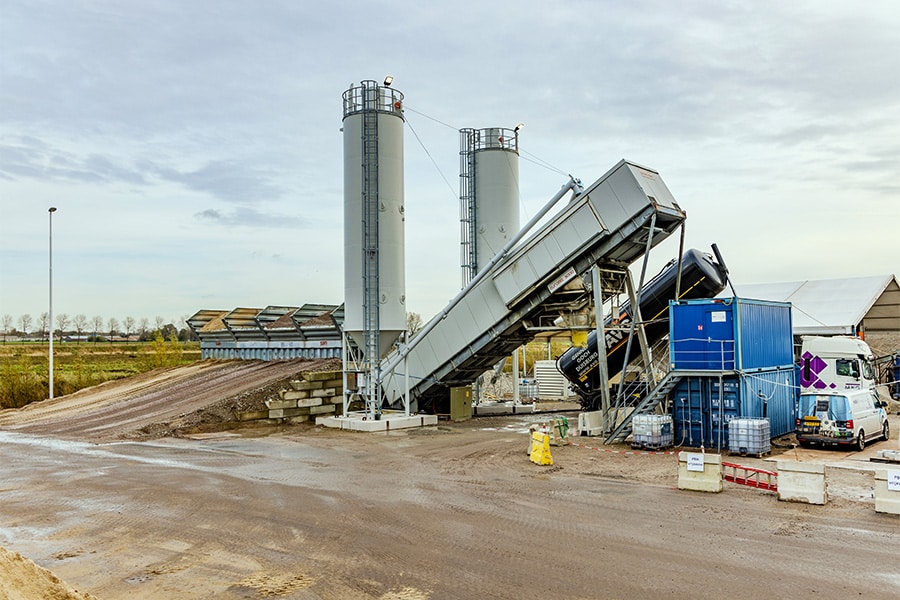
Troubleshooters
MCG offers its customers various cooperation options, such as fixed price agreements per cubic meter, whether or not based on open calculation or as part of a construction team. Optionally, operators can be used. “We act as problem solvers,” said Koelma. “Where other concrete plants are remote, we are always present on the construction site itself. This allows us to move quickly and keep quality and price in balance, regardless of the client's specific requirements. Whatever happens, we can solve it quickly.”
Clean future
MCG is called in for leading projects, among others. “We are enormously proud that we were allowed to supply concrete for Shell's hydrogen plant on the Maasvlakte. In addition, we supply the contractors involved in Porthos, the project in which approximately 37 million tons of CO2 from the Port of Rotterdam will be stored in empty gas fields under the North Sea.” These projects underscore MCG's innovative and forward-looking nature. “We not only want to build now, but above all we want to build for a cleaner future,” concludes Koelma.
